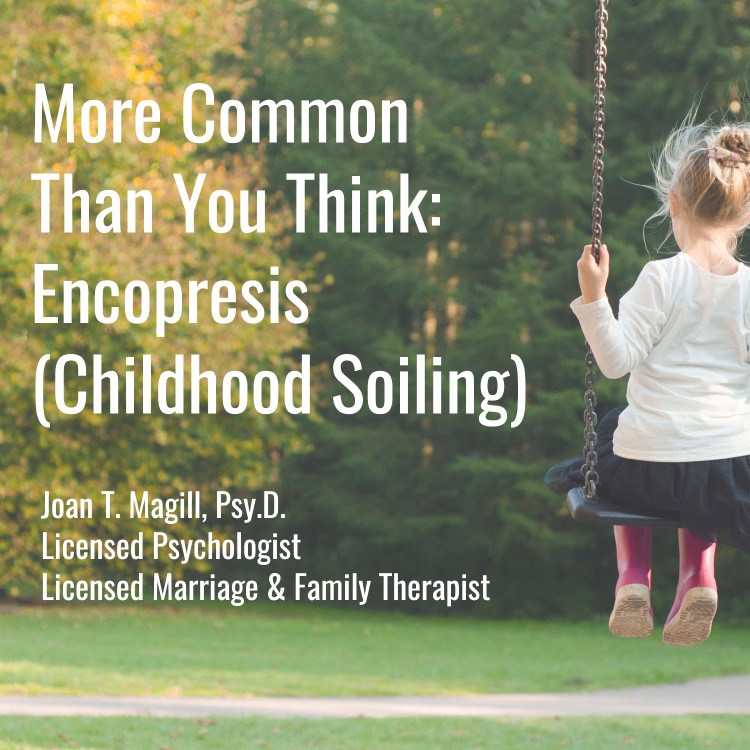
How many children do you know with Attention Deficit Disorder?
Probably several, at least.
How many children do you know who suffer from Encopresis, otherwise known as childhood soiling? You might have observed a much smaller number of children in this latter category. Nationally, only about 4-5% of children are known to have Attention Deficit Disorder, while up to 6% of elementary school children struggle with Encopresis.
Encopresis is an unpleasant problem for the child, his or her family, classmates, and friends. And yet it is easily treated and resolved. In most situations, this condition begins as a simple, physical problem. Due to a combination of embarrassment and misinformation, parents are reluctant to seek help – even from a pediatrician whom they trust. Delayed treatment results in family and social problems, which compound the problem and add to the child’s increasingly poor self-esteem. Left untreated, children may experience a sense of alienation or develop behavior problems.
Symptoms of encopresis include:
- Leakage of stool or liquid stool on underwear, which can be mistaken for diarrhea
- Constipation with dry, hard stool
- Passage of large stool that clogs or almost clogs the toilet
- Avoidance of bowel movements
- Long periods of time between bowel movements
- Lack of appetite
- Abdominal pain
- Problems with daytime wetting or bedwetting (enuresis)
- Repeated bladder infections, typically in girls
Early intervention is essential for positive outcomes. Treatment for Encopresis includes consulting with a psychotherapist who not only can help alleviate the soiling behavior, but also will assist with problems related to this disorder. Most importantly, remember to show compassion to your child as they deal with this uncomfortable situation.

Joan T. Magill, Psy.D., is a licensed psychologist and licensed marriage and family therapist at Therapeutic Oasis of the Palm Beaches. She has been helping children and families with Encopresis for over thirty years.